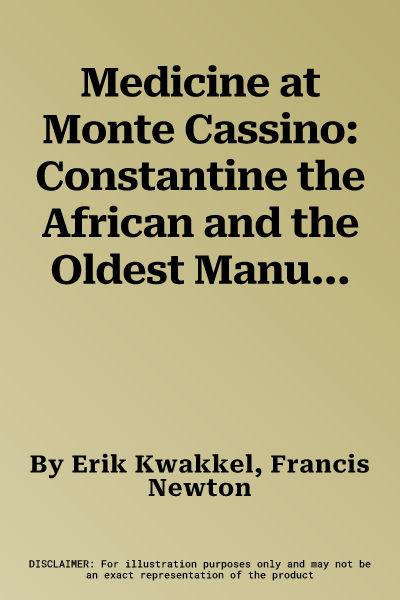Fleeing his North-African homeland for Italy, Constantine the African
joined the abbey of Monte Cassino south of Rome in c. 1077. He then
dedicated his life to the translation of at least two dozen medical
texts from Arabic into Latin. These great efforts produced the first
substantial written body of medical theory and practice in medieval
Europe. His most important contribution, an encyclopedia he called the
Pantegni (The Complete Art), was translated and adapted from the
Complete Book of the Medical Art by the Persian physician 'Ali
ibnal-'Abba al-Magui (d. 982). This monograph focuses on the oldest
manuscript of the Pantegni, which represents a work-in-progress with
numerous unusual features. This study, for the first time, identifies
Monte Cassino as the origin of this oldest Pantegni manuscript, and
asserts that it was made during Constantine's lifetime. It further
demonstrates how a skilled team of scribes and scholars assisted the
translator in the complex process of producing this Latin version of the
Arabic text. Several members of this production team are identified,
both in the Pantegni manuscript and in other copies of Constantine's
translations. The book breaks new ground by identifying a range of
manuscripts produced at Monte Cassino under Constantine's direct
supervision, as evidenced by their material features, script, and
contents. In rare detail, this study explores some of the challenges met
by 'Team Constantine' as they sought to reveal new knowledge to the
West, which in turn revolutionized medical understanding throughout
medieval Europe.

